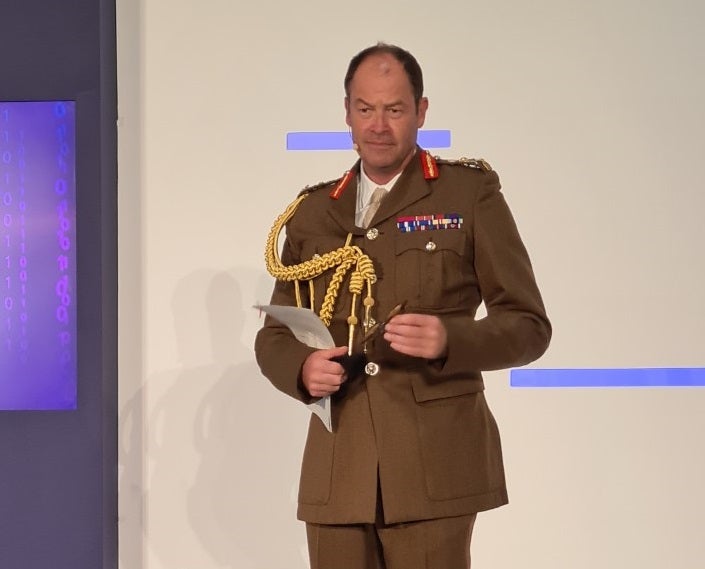
Sanders last addressed DSEI in 2019, shortly before Strategic Command was stood up to drive the integration and science and technology agenda for defence. He used his 2021 keynote to address the theme of this year’s DSEI, multidomain integration, and how it addresses the current threat environment.
“We are now facing the twin spectre of emboldened jihadi terrorists, and something not seen since the 1930s are growing, authoritarian regimes that celebrate the suppression of political and individual freedom as a better way to govern,” he said.
He went on to say that what links these authoritarian regimes is twofold; the use of political warfare that aims to win without fighting using non-military recruits, and the fast expansion of the space and cyber domains coupled with disruptive Information Age technologies.
“These technology frontiers include artificial intelligence, advanced computing, quantum technologies, robotics, autonomous systems and commercial space technologies, additive manufacturing and the Internet of Things, along with the new generations of 5G and beyond the mobile communications that will connect it,” he added.
Sanders said that UK defence needs to recognise the advantages it has; notably in the last 12 months has been offered new funding and the mandate to radically adapt the acquisition model through the integrated operating concept. To achieve this defence needs to make sense of and manipulate unexploited data, for which it needs to work with industry.
“We urgently need to go further and faster together, and in three areas of systems,” Sanders said. “Firstly, development of synthetic environments. Secondly, pursuing the combination of pervasive sensors and edge computing that will enable us to create a military Internet of Things, and realise the potential offered by autonomous systems and intelligent machines.”
He illustrates the need to harness the pace of development in the commercial sector with the fact the processor on an autonomous car has 800 times more processing power than the advanced processor on any military platform, including the F-35.
“We can change this with further development of artificial intelligence and machine learning,” said Sanders.
“Sundar Pichai, the CEO of Alphabet, said recently we’re in the early stages, but I view AI as the most profound technology that mankind will ever develop and work on; even more important than fire and electricity.
“The military use cases for AI at this stage are pace, autonomous systems, cyber defence decision support and intelligence processing,” Sanders said. “However, these present a skills gap and defence will need access to fundamentally different skills and talent, and to place equal value and afford the status to computer scientists, data engineers and cyber operators.”




